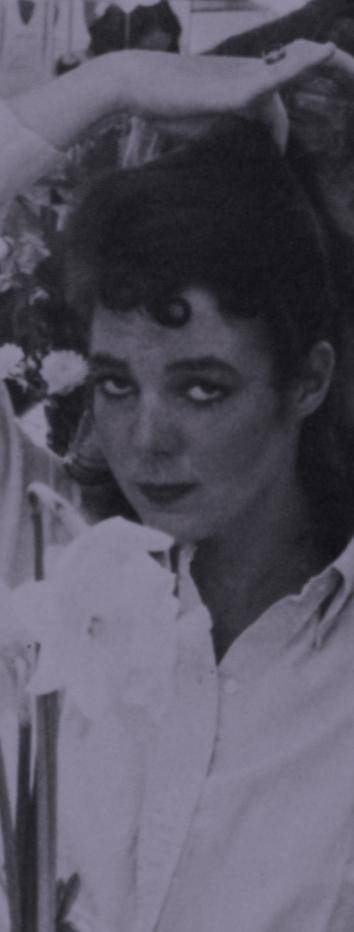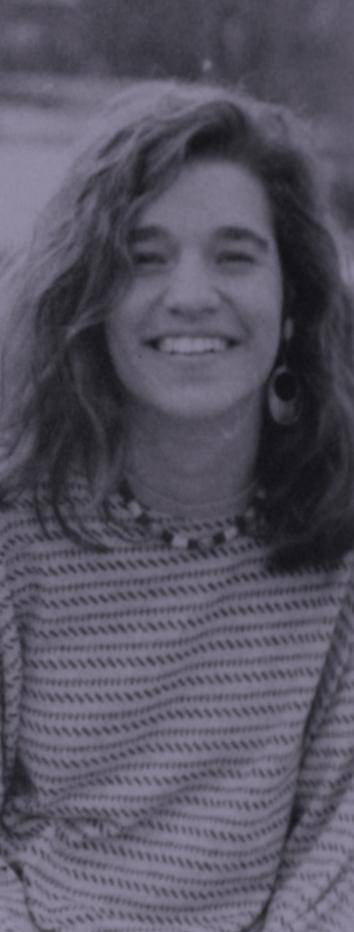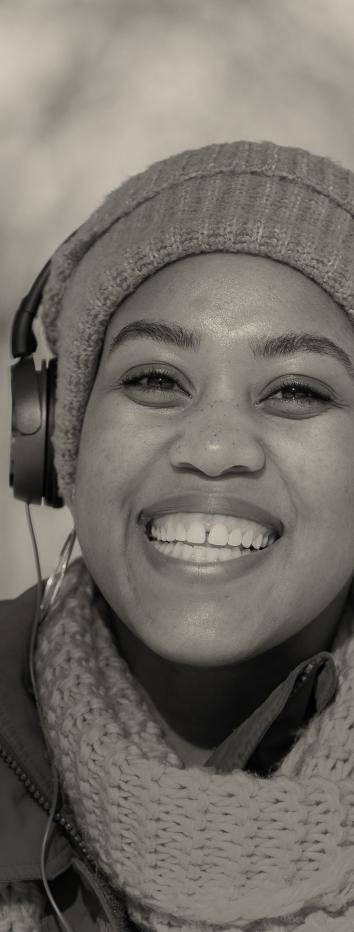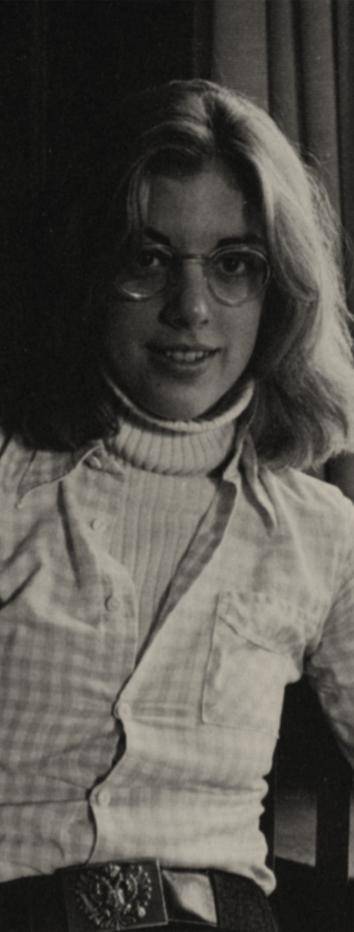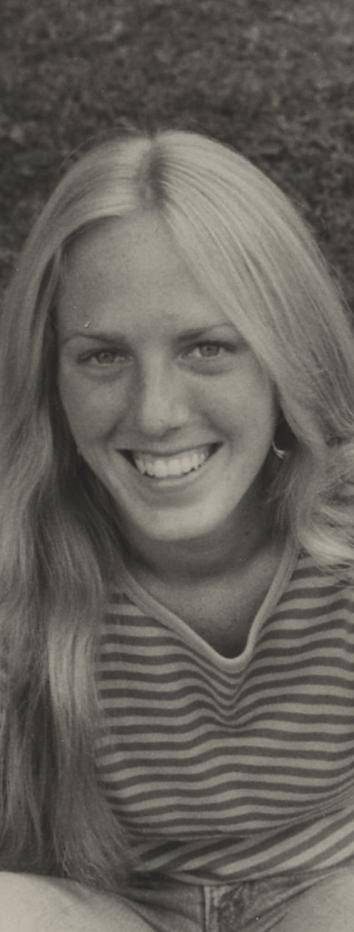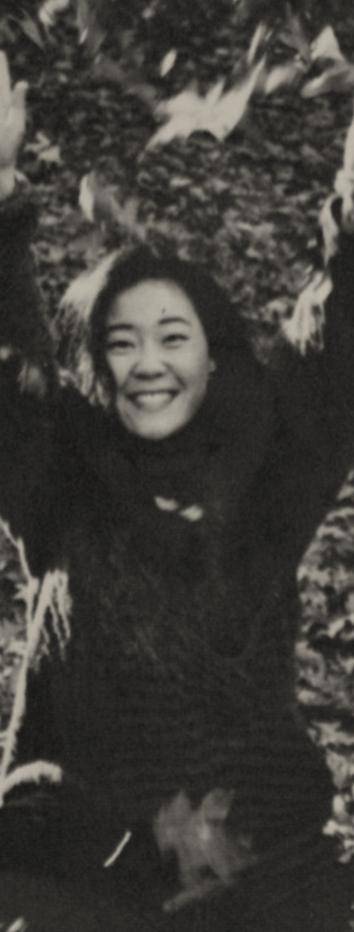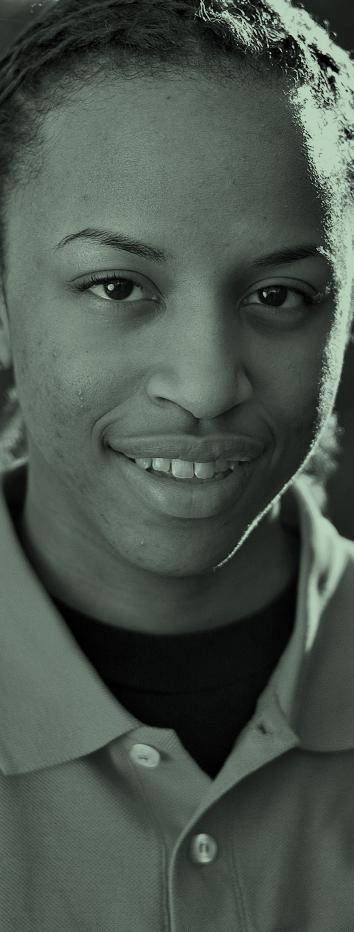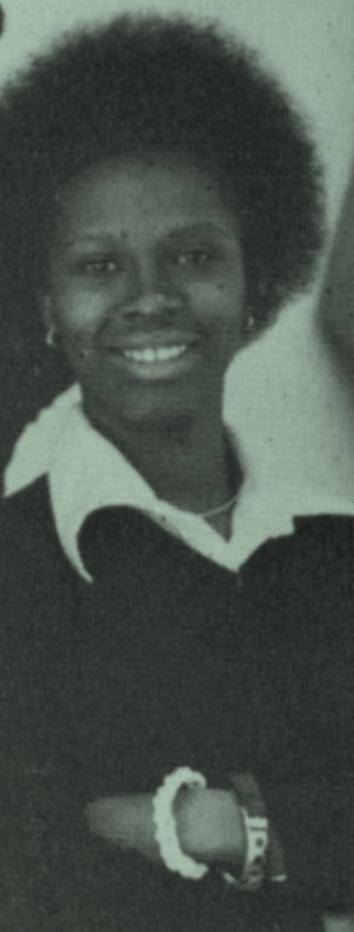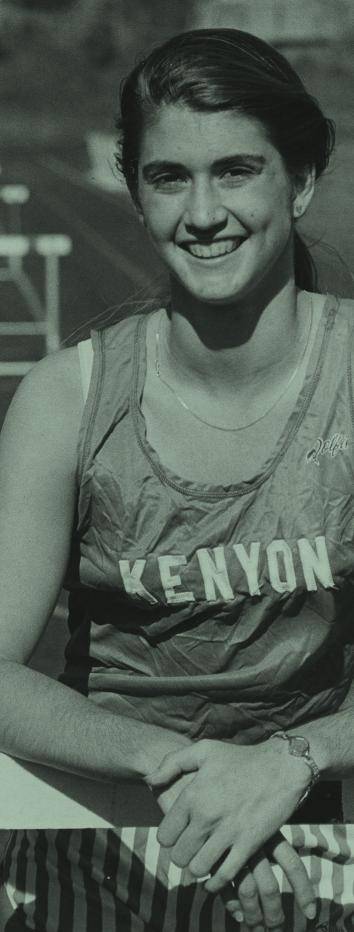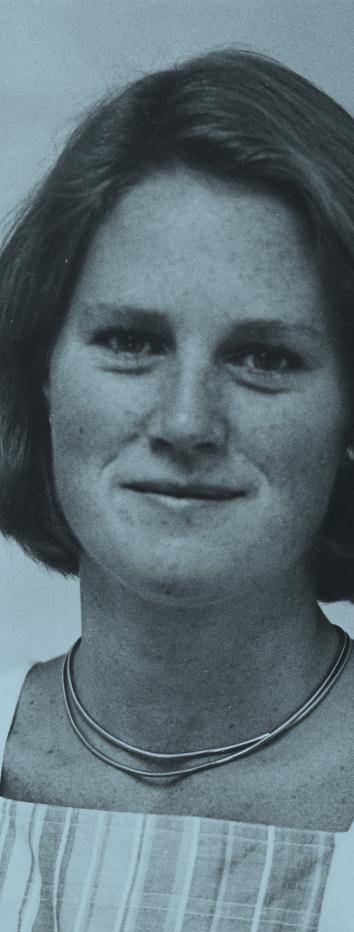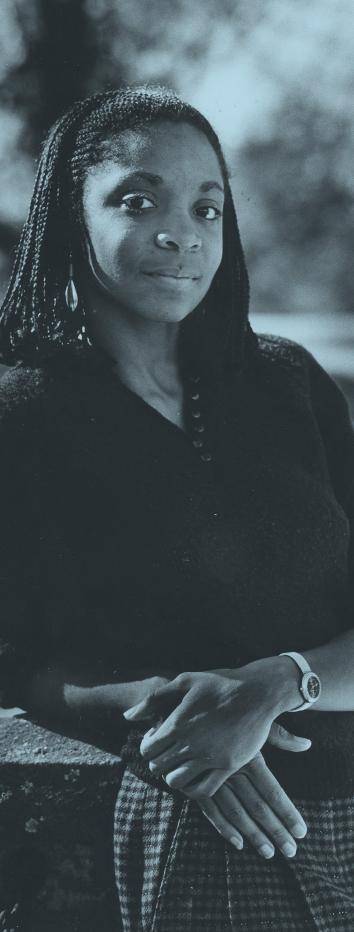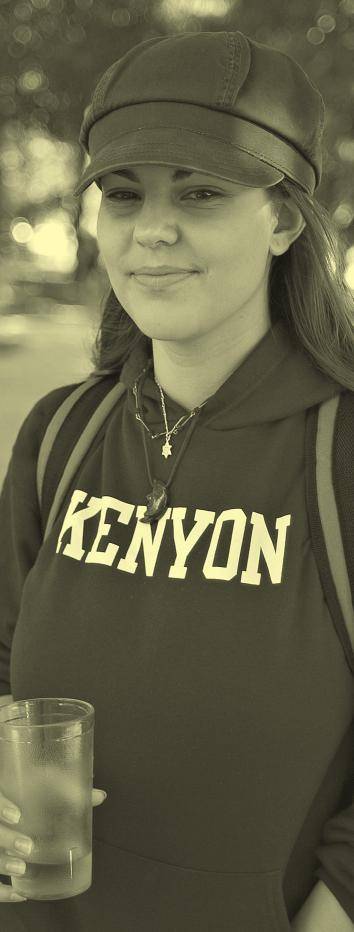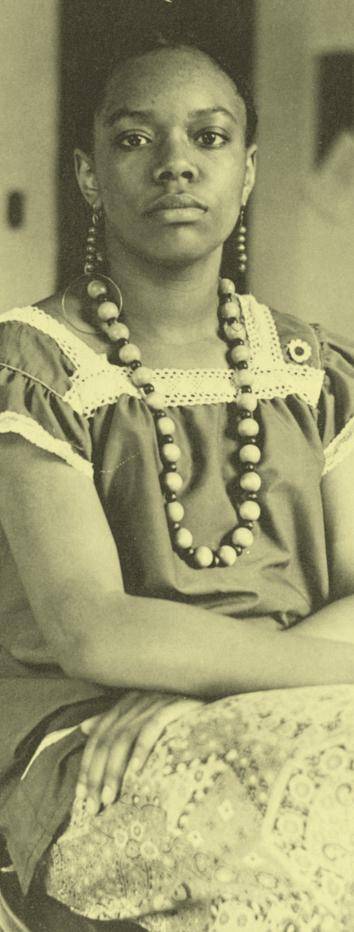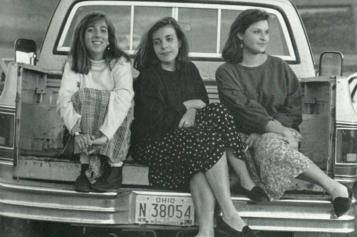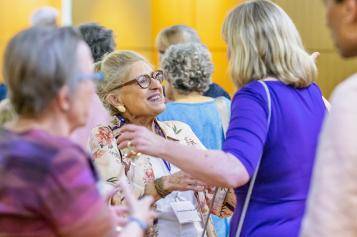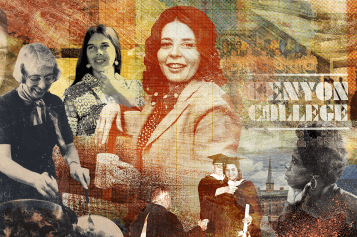In the fall of 1969, the first cohort of women arrived on the Hill and forever changed Kenyon College. The beginning of coeducation and the influence of all Kenyon women will be celebrated throughout the 2019-2020 academic year.
A Timeline of Women’s Impact at Kenyon and Beyond
1824 - 1964
Before Coeducation
From the time of Kenyon’s founding, women played a role in the College’s growth as a liberal arts institution.
View on Timeline1964 - 1969
The Move to Coeducation
Kenyon makes the decision to admit women, expanding the size of its student body and restoring its financial health.
View on Timeline1969 - 1973
The Pioneers
The first women to arrive on the Hill revolutionize the academic and social life of the College.
View on Timeline1974 - 2019
The Influencers
Female students and professors make their mark at Kenyon and beyond.
View on Timeline-
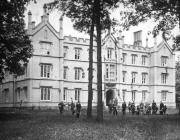 1824
1824On Dec. 29, Kenyon College is officially incorporated by action of the Ohio state legislature.
-
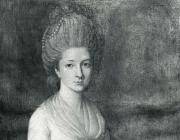 1845
1845The main room of Rosse Hall — the chapel named for Lady Jane King Parsons, the College’s most generous original donor — is first used for regular Sunday worship.
-
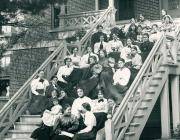 1887
1887The Harcourt Place Seminary for Young Ladies and Girls opens in Gambier, with Lucy Caroline Andrews, as headmistress.
-
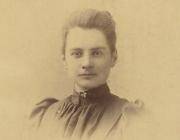 1888
1888Harriet Lathrop Merrow joins the faculty of the Harcourt Place Seminary as an instructor in natural sciences.
-
1889
Emma Wright joins the Kenyon administration as College librarian and serves until her death in 1896.
-
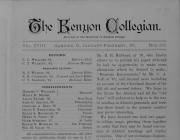 1892
1892In the January-February Collegian, the editors ask, “Is it not high time that Kenyon offered the same advantages to women which for more than sixty years she has been offering to men?”
-
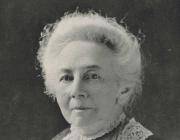 1896
1896Ellen Douglas Smith Devol is named the College’s librarian, a post she holds for 26 years.
-
1906
Philena Taylor becomes the first woman to serve as secretary to the College’s president, then William Foster Peirce.
-
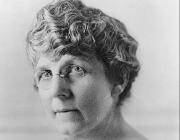 1924
1924Kenyon celebrates its centennial with guests including Florence Kling Harding, who accepts an honorary degree on behalf of her recently deceased husband, U. S. President Warren Gamaliel Harding.
-
1936
The Harcourt Place School, also known as the Harcourt Place Seminary, closes for the last time — a victim of the Great Depression.
-
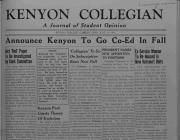 1946
1946The June 19 Collegian leads with the satirical headline, “Announce Kenyon to Go Co-ed in Fall.” “Who knows, for the first time in its long and distinguished journalistic career the Collegian may be published by members of the fair sex in the Fall Term,” the article reads.
-
1947
Florence Dyke Lewis Rauh of Elyria, Ohio, donates $323,000 to Kenyon in memory of her late husband, David Lewis. The first $50,000 is allocated to a scholarship fund, while the remainder of the gift is designated for construction of a freshman residence hall.
-
1962
In September, students return to a campus that no longer provides maid service in student rooms, requiring Kenyon men to make their own beds — in the words of President F. Edward Lund — “just like the boys at Harvard and Yale.”
-
1964
President F. Edward Lund and the Board of Trustees discuss what it would take to save Kenyon, which is teetering on the edge of financial ruin. The College could either recruit more men (a challenge) or bring women to Kenyon.
-
1965
On Feb. 27, the Kenyon board approves (in principle) the expansion of the student body and the creation of the Coordinate College for Women, which would admit around 175 female students in the fall of 1969. According to the Fall 2013 Bulletin, “as news of the plan leaked out, alumni and students reacted, often vehemently … A campus poll indicated that more than half of the 644 students opposed entry of women.
-
1966
Sylvia Barnard is hired into a two-year position as an assistant professor of classics, but leaves after one year.
-
1967
Kenyon announces its Program for Expansion, which entails an increased enrollment of men and, for the first time, the admission of women.
-
 1968
1968On Oct. 15, Kenyon breaks ground for construction of the commons and residence halls of the Coordinate College for Women. According to the Fall 2013 Bulletin, “The new dorms would cluster women in sixteen-person ‘social units’ … and would feature a curved ‘feminine’ design.”
-
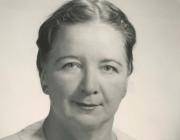 1968
1968On Dec. 12, Doris Bean Crozier, a professor of anthropology and assistant to the president at Chatham College, is announced as the dean of the Coordinate College for Women. “An international traveler who had lived and taught in Germany and Cambodia, Crozier knew something about foreign cultures — an understanding that, as the sole female member of an all-male administration, would serve her well,” Hoekstra writes in the 2013 Bulletin article.
-
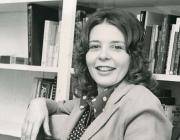 1969
1969Harlene Marley, a new assistant professor of drama and the second woman (after Sylvia Barnard) to be hired into a tenure-track position at Kenyon, arrives on campus.
-
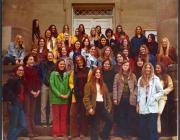 1969
1969On Sept. 8, Kenyon marks the official opening of the Coordinate College for Women and the unofficial end of single-sex education on the Hill. The Collegian, in its Sept. 18 paper, noted that although “many Kenyon men welcomed the presence of girls on Middle Path, the majority still viewed the addition with clearly mixed feelings.”
-
1969
The Sept. 8, 1969 edition of the Cleveland Plain Dealer featured a news article about Kenyon’s announcement. The headline read, “Male Tradition Broken: Coeds at Kenyon after 145 Years,” followed by: “A new look comes to Kenyon College today — girls.”
-
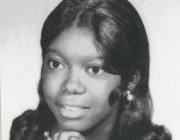 1969
1969Barbara (Lee) Johnson ’73, Doretha Smallwood ’73 (now Leftwood) and and Glory Wolfe (now Shuler) '73, the first black women to study at Kenyon, arrive on campus.
-
1969
Mieko Muto is the first female international student to attend Kenyon. An exchange student from Japan’s Waseda University, Muto immerses herself in Kenyon’s culture of writing and becomes circulation editor of the Collegian.
-
1969
On Sept. 18, Linda Urban ’73 (later Sears) becomes the first woman student to have her byline in the Collegian. The article’s title is “Women in Kenyon Tradition.”
-
1969
On Oct. 1, the Council of the Coordinate College for Women announces its membership, including Dean Doris Crozier and Provost Bruce Haywood, faculty members Anthony Bing, James Ceaser, Harlene Marley (president), and elected students Darlene Gaughan (secretary), Amy Goodwin, Susan McGannon, Susan Schmidt, and Leonie Silverman.
-
1969
At Founders’ Day, the Oath of Matriculation is administered only to the men in the freshman class. Ohio State University President Novice Fawcett ’31 gives the address.
-
 1969
1969Also in October, a group of nine women begins working out in Shaffer Pool in anticipation of creating a women’s swimming team.
-
1970
From Feb. 5-7, the Kenyon College Dramatic Club presents a rock-musical version of Aristophanes’s “Lysistrata,” with Mia Halton ’73 in the title role.
-
1970
On Jan. 28, the Coordinate Council abolishes curfews for students at the Coordinate College for Women.
-
1970
Kenyon’s Lambda Chapter of Sigma Pi fraternity disaffiliates from its national organization and becomes a local group known as the Peeps (its former nickname), and admits women as members.
-
1970
The April 16 issue of the Collegian runs an article on the beginnings of a women’s lacrosse team at Kenyon, with 17 members of the Class of 1973.
-
 1970
1970On April 9, the Kenyon College Dramatic Club presents its production of the Peter Weiss play “The Persecution and Assassination of Jean-Paul Marat, as Performed by the Inmates of the Asylum of Charenton Under the Direction of the Marquis de Sade, or Marat/Sade,” the first to be directed by Assistant Professor of Drama Harlene Marley. The leading female role of Charlotte Corday is played by Colleen Kelly ’73.
-
1971
With the May 6 issue of the Collegian, Liesel Friedrich and Denise Largent, both of the Class of 1973, become the first women editors of the newspaper."
-
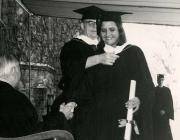 1971
1971On May 30, Kenyon awards degrees to its first three female graduates, Belinda Bremner, Judith Hobbs Goodhand and Patricia Sellew (the first woman elected to the Beta of Ohio Chapter of Phi Beta Kappa). All three came to the College as transfer students in 1969.
-
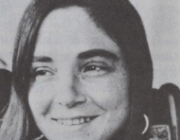 1971
1971Poet Adrienne Rich gives a reading on campus. Kenyon is the first stop on her tour of 10 Ohio colleges.
-
1972
Flora Katz ’72 becomes the first Kenyon woman to be awarded a Watson Fellowship for travel and study abroad.
-
1972
On June 3, the Kenyon board votes to approve an experiment in coeducational housing. The first residences to have both female and male occupants are Farr Hall (suite by suite), Caples Residence (floor by floor), and the Bexley and New apartments (apartment by apartment). In addition, Bushnell Hall is designated as a women’s residence hall to integrate housing on the South Campus.
-
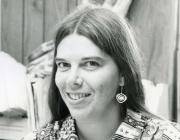 1972
1972In July, Karen Burke joins Kenyon as assistant director of women’s physical education and the first full-time coach of the College’s field hockey and women’s lacrosse teams. For five of her eleven years at Kenyon, she simultaneously coaches four sports: basketball, field hockey, lacrosse, and volleyball.
-
 1972
1972Kenyon announces the formation of a women’s basketball team.
-
1972
On Feb. 19, the Kenyon board votes that the College will become a coeducational institution on July 1, 1972. Thus the short life of the Coordinate College for Women comes to an end, perhaps as intended from the beginning. In a Collegian article, Provost Bruce Haywood says he hopes that the word “student” can now be used “without any further qualification,” and that he foresees a time when “we will no longer speak in terms of the number of men and number of women enrolled at Kenyon.”
-
1972
Leonie Silverman ’73 (now Deutsch) is announced as the first woman editor of Reveille, Kenyon’s yearbook.
-
1973
Geraldine “Geri” Coleman ’74 (now Tucker) becomes the first woman to serve as president of the Black Student Union.
-
1973
Jean Dunbar ’73 becomes the first Kenyon woman to be awarded a Danforth Scholarship for graduate study.
-
1973
On May 27, Kenyon graduates its first fully coeducational class, consisting of 211 men and 100 women.
-
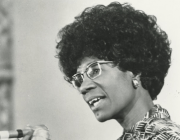 1973
1973Also on May 27, U.S. Representative Shirley Chisholm addresses the class, becoming the first African-American woman to deliver the Commencement address at Kenyon and to receive an honorary doctorate from the College.
-
1974
In January, Kim Stapleton ’74 (now Smith) is “activated” as a member of Psi Upsilon, becoming the first woman to join a Kenyon fraternity.
-
1974
In April, College administrators reject a Peeps proposal to allow women to live in their division of Old Kenyon, citing concerns for the women’s safety, the “feelings” of members of the building’s other fraternities (Alpha Delta Phi and Delta Kappa Epsilon), and a desire for authorization by the board of trustees.
-
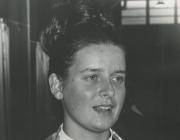 1974
1974On July 1, Rev. Joan P. Grimm, who later became one of the first women to be ordained to the priesthood by the Episcopal Church (1977), begins a two-year tenure as Kenyon’s associate chaplain.
-
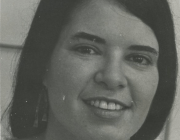 1974
1974In September, the Collegian announced that M. Joan Larson, who taught biology at Kenyon from 1971 to 1974, had filed suit against the College alleging sex discrimination in faculty salaries.
-
1974
In early 1974, recent graduate Julie Miller (now Vick) '73 returns to the College to establish, with support from Provost Bruce Haywood and Dean Susan Givens, the After Kenyon Library, which will evolve into the College's Office of Career Development.
-
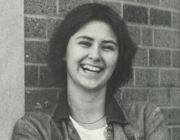 1975
1975Georgiene Radlick ’76, becomes the first woman to be elected president of a senior class.
-
1975
The Owl Creek Singers are established as Kenyon’s first all-female a cappella group.
-
1976
Kenyon’s Women’s Center becomes an official student organization, with headquarters in a former Peirce Hall storeroom. "We are beginning with a positive outlook," co-organizer Lauren Rosenbloom ’78 tells a Collegian reporter. “We're not anti-Kenyon or anti-male, but pro-information, decision and choice." The group’s mission includes improving women’s medical facilities on campus, as well as providing opportunities for women faculty and students to better connect with one another.
-
 1976
1976February sees the resignation of Sharon A. Decker, the first woman to be hired into a tenure-track position in the Department of English. Decker cites “social isolation,” “hostility” and “lack of understanding,” as well as opposition to change, among her reasons for leaving to accept a job at the University of Virginia.
-
 1976
1976On March 5, Dame Kathleen Kenyon, noted archaeologist and a cousin of the fourth Lord Kenyon, offers a talk entitled “Digging Up Jerusalem."
-
1976
On March 31, President Jordan announced the appointment of Donna Hurt Scott as Kenyon’s part-time equal opportunity coordinator, serving also as assistant to the President’s Advisory Committee on the Status of Women at Kenyon.
-
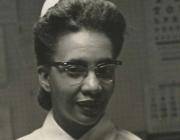 1976
1976On July 26, Gene C. Payne, who had served as head nurse at Kenyon’s Health Service, dies at the age of 59. One of the College’s first African-American employees, she joined the Kenyon staff in 1962 after many years as head nurse at Mercy Hospital in Mount Vernon, Ohio.
-
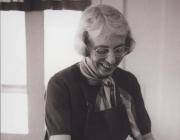 1976
1976Joyce Klein and Peggy Turgeon start what will become a beloved tradition: Friday Cafe, a lunchtime gathering, open to all, featuring homemade gourmet comfort food and camaraderie.
-
1977
At Honors Day, Nina Freedman ’77 becomes the first woman to be awarded Kenyon’s E. Malcolm Anderson Cup, for the student who has done the most for the College in the preceding year.
-
1978
Kathryn “Ryn” Edwards, Kenyon’s first out lesbian professor, joins the biology faculty as an assistant professor. Open about her sexual orientation from the start, she becomes an important part of the College’s gay and lesbian community and an essential player in efforts for equality on campus.
-
1979
Fiber artist, quiltmaker, hand dyer and surface designer Debra S. Lunn ’73 P’98 H’05 creates a quilt, “Counterpoint,” that, according to a biography on the Lunn Fabrics website, becomes the first and only piece in Quilt National ’79 that was made of hand-dyed fabrics.
-
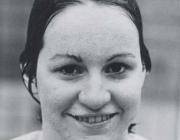 1981
1981In March, the Ladies swimming team makes its first appearance at the NCAA Division III championships. All-American swimmer co-captain Katrina Singer ’81 (now Litchfield) places third in the 200-meter backstroke at nationals.
-
1982
Cathy R. Gregg ’76 co-founds Treasury Solutions, a treasury management consultancy which is acquired by Novantas, Inc. She becomes a vocal advocate for client interests in regulatory matters.
-
1984
“Shapes of Their Thoughts: Reflections of Culture Contact in Northwest Coast Indian Art,” by Victoria Wyatt ’77 H’15, a historian, teacher expert in Native American art and culture, is published.
-
1986
Evelyn King ’92 and Rebecca Vazquez-Skillings ’93 become the founding members of a new club, Adelante, which aims to promote Latin American and Latinx culture on campus.
-
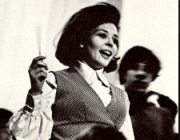 1987
1987On July 1, Harlene Marley of the Department of Dance and Drama becomes Kenyon’s first female faculty member to be awarded a full professorship.
-
 1988
1988On July 1, Lisa Dowd Schott ’80 becomes the first woman, and first Kenyon alumna, to serve as the College’s director of alumni and parent programs.
-
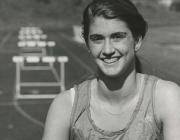 1989
1989The Kenyon Athletic Association Hall of Fame inducts its second class, including its first woman, two-sport (swimming and track) All-American Elizabeth Ann Batchelder ’84 (now Boring).
-
1990
Author Nancy Sydor-Zafris ’76 H’93 wins a Flannery O'Connor Award for Short Fiction, for her book, “The People I Know,” which is a collection of short stories about characters “who hover at the edge of life.”
-
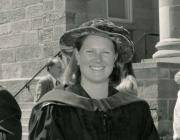 1991
1991At Honors Day, Cornelia “Buffy” Ireland Hallinan ’76, becomes the first Kenyon alumna to be awarded an honorary doctorate by the College.
-
1991
Following the death of her infant daughter, Betsy Upton Stover ’73 co-founds Ele’s Place, a nonprofit, community-based healing center for grieving children and their families, with her husband, Woody Stover, and a group of mental health professionals and concerned community volunteers.
-
1992
Allison E. Joseph ’88 H’14 receives Ploughshares magazine's John C. Zacharis First Book Award for her collection of poems, “What Keeps Us Here.” While at Kenyon, Joseph was the first undergraduate to be published in the Kenyon Review since Robert Lowell and James Wright.
-
1992
Julia Miller Vick ’73 P’12 H’97, the first woman to major in classics at Kenyon, co-authors the first edition of “The Academic Job Search Handbook” with Mary Morris Heiberger. The book guides aspiring faculty members step-by-step through the job hunting process.
-
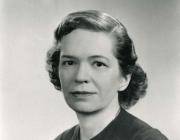 1993
1993On May 13, Roberta Teale Swartz Chalmers, poet, professor, widow of President Gordon Keith Chalmers, and often unacknowledged co-founder of the Kenyon Review, dies at her home in Newton, Massachusetts, at the age of 89. According to the Fall 2018 Bulletin, Chalmers was the one who had noticed the absence of an American literary review and encouraged her husband to remedy this oversight.
-
1993
Julia F. Johnson ’73 H'99, becomes Banc One’s first female senior vice president, as well as the first female member of the exclusive Columbus Club. “When I was told my application had been accepted, I was advised that it was a big deal,” she tells Columbus Monthly magazine, in September 1993.
-
1994
In October, Kenyon announces a $1.25-million gift from Peg and Andrew Thomson P’76 and the Beatrice P. Delany Charitable Trust to fund the Sheila and Philip Jordan Jr. Professorship in Environmental Science.
-
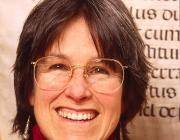 1994
1994In October, Professor of History Joan Cadden is awarded the Pfizer Prize, recognizing the year’s most outstanding work in the history of science, for her book “Sex Difference in the Middle Ages: Medicine, Science, and Culture.”
-
1994
Historian Janette Thomas Greenwood ’77 H’11 publishes her first book, “Bittersweet Legacy: The Black and White ‘Better Classes’" in Charlotte, North Carolina, 1850-1910.” The landmark study challenges the fundamental premises of earlier work on the New South, which tends to separate the histories of whites from those of African-Americans.
-
1994
President Bill Clinton appoints The Hon. Kathleen O’Malley ’79 H’95 to U.S. District Court for the Northern District of Ohio.
-
1995
The Hon. Kathleen O’Malley ’79 H’95 is the first Kenyon alumna to be the Commencement speaker — a milestone that coincides with the 25th anniversary of coeducation.
-
1997
Lean'tin Bracks ’94 H’08 publishes her first book, “Writings on Black Women of the Diaspora: History Language and Identity.”
-
1997
Vicki Barker ’78 H’96 is hired to host the BBC World Service's morning world news program for U.S. listeners, “World Update.” She later produces a four-part radio documentary, "The Changing Face of Global Power," which introduces the world to the concept of the "BRICs" — Brazil, Russia, India and China as rising powers.
-
1997
The film "House of Yes" — based on a play written by Wendy MacLeod '81 — wins a Special Jury Award at the Sundance Film Festival.
-
1998
Melissa L. Kravetz ’99 becomes the College’s first student to be awarded the Doris B. Crozier Award and the E.Malcolm Anderson Cup.
-
1998
Cornelia “Buffy” Ireland Hallinan ’76 becomes the first Kenyon alumna to be elected chair of the College’s board of trustees.
-
1998
Kristina Peterson ’73 H’98 is named president of Random House Children's Group and receives an honorary doctor of laws at Kenyon. She later accepts a new position as president of Simon & Schuster’s children’s publishing division.
-
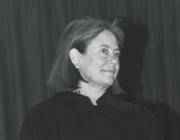 1999
1999At Honors Day, Julia F. Johnson ’73 is awarded an honorary doctor of laws.
-
1999
Inductees to the Kenyon Athletic Association Hall of Fame include the 1972 field hockey and 1973 women’s lacrosse teams and their coach, Karen Burke.
-
2001
Anne C. Griffin ’78 is among the members of the inaugural board of directors for the Philander Chase Corporation, which is created to lead Kenyon’s efforts to preserve the College’s rural environment.
-
2001
Starting this year, Kenyon consistently enrolls more female than male students, with the percentage of female students fluctuating between 52 and 56 percent during the ensuing years.
-
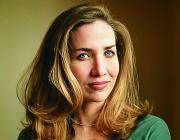 2001
2001Laura Hillenbrand ’89 H’03 publishes her first nonfiction book, “Seabiscuit: An American Legend,” about the famous Thoroughbred racehorse, Seabiscuit. The New York Times best-seller becomes a finalist for the National Book Critics Circle Award and wins both the Book Sense Nonfiction Book of the Year award and the William Hill Sports Book of the Year Award.
-
2002
Aileen C. Hefferren ’88 H’12 is appointed chief executive at Prep for Prep, a leadership development program that prepares New York City’s most promising students of color for placement in private schools. In 2012, she delivers Kenyon’s Commencement address on race in America.
-
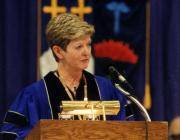 2003
2003Kenyon appoints its first woman president, S. Georgia Nugent, a former dean at Princeton University and a member of Princeton’s Class of 1973 — its first fully coeducational class.
-
2003
On July 1, S. Georgia Nugent becomes Kenyon’s 18th president. In her inaugural address, she invites everyone to take part in "this endless odyssey of education," and thereby to increase "Kenyon's capacity to act in and transform our world."
-
 2003
2003Senior Ashley Rowatt Karpinos ’03 is named the 2003 NCAA Woman of the Year and became the first-ever recipient from an NCAA Division III institution.
-
2003
Robin L. Bennett ’81 H’09 is elected president of the National Society of Genetic Counselors.
-
2004
Following the death of Kenyon parent and trustee Marilyn V. Yarbrough, the College’s board names the Dissertation/Teaching Fellowship in her honor. Yarbrough, a law professor at the University of North Carolina at Chapel Hill, was well known for her work on race and gender discrimination, sports law and legal education.
-
2005
At Honors Day, Debra S. Lunn ’73 is awarded an honorary doctor of fine arts. At the same event, Kelly P. Burke ’06 is announced as one of the College’s three winners of the year’s Barry M. Goldwater Excellence in Education Scholarship.
-
2007
The Gambier Child Care Center opens in November, making it easier for Kenyon employees to find affordable care for their children. “I think that being a woman contributed to my wanting to improve the child care situation," President Nugent later tells the Bulletin.
-
2008
As Kenyon celebrated the 35th anniversary of the first full graduating class of women during Reunion Weekend 2008, Bonnie Levinson '73 and Todd Leavitt '73 spearheaded a project to capture the stories of members of the Class of 1973. Video interviews from the project are available on Vimeo.
-
2010
The Hon. Kathleen O’Malley ’79 H’95 is appointed to the U.S. Court of Appeals for the Federal Circuit by President Barack Obama.
-
2012
Among the first four students to reside at The Kenyon Farm are Claire O’Connell ’13 and Anna Peery ’14.
-
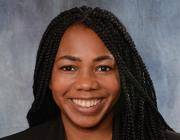 2012
2012Hope C. Harrod ’98, a teacher at John Burroughs Elementary School, in Washington, D.C., is named Teacher of the Year by District of Columbia Public Schools.
-
2012
Obstetric anesthesiologist McCallum R. Hoyt ’76 H’95 is appointed to a one-year term as president of the Society for Obstetric Anesthesia and Perinatology.
-
2012
Jennifer Rudolph Walsh ’89 P’20 H’12, head of the worldwide literary department and a board member of talent agency William Morris Endeavor, makes The Hollywood Reporter’s Women in Entertainment 2012: Power 100 list.
-
2012
The publication FierceBiotech includes Linda Slanec Higgins ’84 H’17 on its annual list of Women in Biotech.
-
2013
On June 30, S. Georgia Nugent retires as Kenyon’s first woman president, after a decade in the position. She is succeeded by Sean Michael Decatur, Kenyon’s 19th — and first African-American — president. He takes office on July 1.
-
2015
President Barack Obama nominates career diplomat Katherine Simonds Dhanani ’81 H’16 as the first U.S. ambassador to Somalia in more than 23 years. Dhanani, the State Department’s director of the Office of Regional and Security Affairs in the Bureau of African Affairs, later withdraws her nomination for personal reasons.
-
2016
“Sweetbitter,” the debut novel by Stephanie Danler ’06 is released with much fanfare. It is named by TIME, Esquire and Elle as one of the best books of the year. In 2018, Danler serves as executive producer of a Starz TV series based on the book.
-
2016
The Obama administration honors two alumnae for their change-making work. Colette Pichon Battle ’97 H’18, director of the Gulf Coast Center for Law & Policy in Slidell, Louisiana, is among 10 individuals recognized by President Barack Obama as “White House Champions of Change for Climate Equity.” According to a press release, the White House selected Battle because of her work “with local communities, national funders and elected officials around equity issues in her home state of Louisiana in the post-Katrina and post-BP disaster in the Gulf Coast.” And Sonya Pryor-Jones ’94, the chief implementation officer at the Fab Foundation, is named one of 10 “White House Champions of Change for Making,” for empowering people to become inventors in a digital age. "I believe that education is the greatest equalizer," she writes in a White House blog post.
-
2017
On April 19, Kenyon hosts its first Lavender Graduation ceremony for graduating LGBTQ seniors in Peirce Pub. Jillian Watts, former assistant director of the Office of Diversity, Equity and Inclusion, spearheaded the effort to bring the national event to Kenyon.
-
2017
Judy Hoff Gilbert ’91 is hired into a newly created role at biotech company Zymergen: chief people officer. On April 12, Vanity Fair interviews Gilbert for a piece titled, “How one tech start-up ditched its brogrammers. And became a better company.”
-
2017
Scientist Flora Katz ’72, H’94 is promoted to director of the research, training division of the Fogarty International Center of the National Institutes of Health.
-
 2018
2018On March 4, Allison Janney '82 H'00 wins her first Academy Award — Best Performance by an Actress in a Supporting Role — for her acting in “I, Tonya.” She publicly thanks her mentor Joanne Woodward for her “encouragement and generosity that gave me the confidence to think I could pursue a career in acting.”
-
2018
Kenyon’s student portal, MyBanner, becomes more inclusive for students of all gender identities. Students can easily enter and regularly update their name, gender identity and pronouns on Banner.
-
2018
On Jan. 7, Allison Janney ’82 H’00 wins her first Golden Globe Award — Supporting Actress in a Motion Picture — for her portrayal of LaVona Golden, Tonya Harding’s abusive, chain-smoking, foul-mouthed, bird-wearing mother, in “I, Tonya.”
-
 2019
2019Elizabeth “Lizzie” Pannill Fletcher ’97 is sworn in as a member of the 117th U.S. Congress on Jan. 3, becoming the first Kenyon alumna to serve on Capitol Hill.
-
 2019
2019Ruby Schiff ’21 takes the stage at the 91st Academy Awards to help accept an Oscar for “Period. End of Sentence.” She was an co-executive producer of the short-subject documentary.







